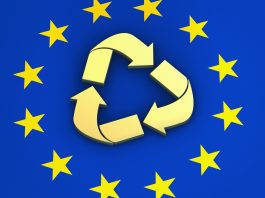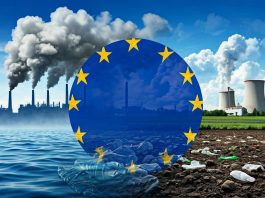Matthew Ekholm, Digital Product Passport and Circularity Specialist at Protokol, discusses how the EU’s Digital Product Passports movement will advance a circular economy.
As global warming continues to burden the planet, it is not news that sustainability is becoming a growing imperative for businesses and consumers operating in the modern world. We can already see the modern consumer mindset shifting, with many willing to pay a 9.7% sustainability premium, even as cost-of-living and inflationary concerns weigh.
In the same vein, as part of Apple’s goal to become carbon-neutral by the end of the decade and its desire to appeal to a more demanding eco-consumer, it has already cut 55% of greenhouse gas emissions since 2015, simply showing just how important sustainability has become as a growing business objective.
Alongside big tech, governments are also taking sustainability more seriously and implementing a range of laws to enhance circularity and force businesses to make more sustainable decisions. This includes the Ecodesign for Sustainable Products Regulation (ESPR), which stands as part of the EU’s Circular Economy Action Plan and aims to advance the sustainability factor of products circulating in the EU marketplace.
While some businesses are making genuine efforts to support circularity, others seek recognition without real action, making it challenging for consumers to differentiate between them and fuelling growing concerns around greenwashing. However, by leaning into the EU’s sustainability legislation, businesses will be able to stand out as true sustainable providers and set themselves apart from those who simply preach it.
The EU’s sustainability movement and advancing consumer relations
The EU’s sustainability legislation could be seen as a burden for businesses that place products in the EU market due to these varied and complex demands. At the same time, businesses are feeling the strain of having to appeal to the modern consumer’s increasing appetite for sustainable products and services. These two pressures combined are making many feel overwhelmed when it comes to carving out more sustainable processes.
However, if businesses employ a strategic mindset, there is an incredibly clear way to solve one issue by leaning into another. Through their ESPR compliance efforts, and particularly the legislation’s mandate of Digital Product Passports (DPPs), businesses can comply and prove their sustainability credentials to appeal to consumers in one motion.
The role of DPPs in highlighting the real eco-businesses
DPPs serve as a crucial tool for sustainability by enabling seamless information exchange between consumers and producers regarding a product’s environmental impact.
Functioning as a secure digital record, they can track a product’s lifecycle, storing key details such as event history, transactional data, and sustainability metrics like its carbon footprint. They ensure greater transparency and accountability in sustainable production and consumption.
Uniquely, DPPs can also enable businesses to provide a clear path to end-of-life handling. For example, they can provide information on how to dispose of items in the most environmentally friendly way and what materials can be recycled. To access the DPP, consumers can simply scan the data carrier (such as a barcode or QR code affixed to the physical product) with a device such as a smartphone.
With the data noted above being accessible to the consumer, there are very clear opportunities and guidance for consumers to take more sustainable actions with their purchased goods. DPPs also enable businesses to appeal to the modern consumer by providing a way to offer and access information on the sustainable ‘make-up’ of their product. This can include additional information on a range of fronts, including but not limited to where a product’s materials were sourced and key data points relating to the raw material extraction processes.
By providing the consumer with such precise data on the entire lifecycle of a product, businesses can validate their sustainability claims and ensure accusations of greenwashing are quickly dismantled due to the data DPPs provide.
In a survey conducted by McKinsey & Company, it was found that 60% of consumers actively prioritise sustainable products and brands. Integrating DPPs gives consumers an inside look at the efforts behind making products, services, or operations more sustainable. This transparency not only helps counter greenwashing concerns but also fosters customer loyalty by presenting the company as open, trustworthy, and committed to its sustainability promises.
DPPs can also support customers in their experience of the resale market, providing them with a convenient resource to verify ownership and sourcing of products, the history of any repairs or upgrades, and the authenticity of the products they purchase.
Addressing challenges as one: Paving the way in sustainable business
Although the EU has yet to announce the delegated acts – information regarding the product data required by each industry to comply with the ESPR’s DPP mandate – the electronics industry has been marked as a priority sector for the legislation, potentially having to comply as soon as 2027 due to its detrimental production of e-waste.
On this, as time continues to pass, technology firms that are keen to thrive amidst this shifting landscape and connect with the modern ‘eco-eyed’ consumer should take active steps now to not only ensure compliance with the ESPR’s DPP mandate but also position themselves as a brand of the future – one that is prioritising sustainably.
As DPPs enable brands to showcase their sustainability pledge, the reputation as an eco-conscious, circular company is likely to increase customer loyalty. Similarly, by proactively addressing the ESPR’s DPP mandate, businesses can set themselves apart as future-ready brands with data-driven credibility.
As consumers become increasingly focused on sustainability, taking the lead now in adopting digital product passports will position businesses as innovators in circularity within their field.





